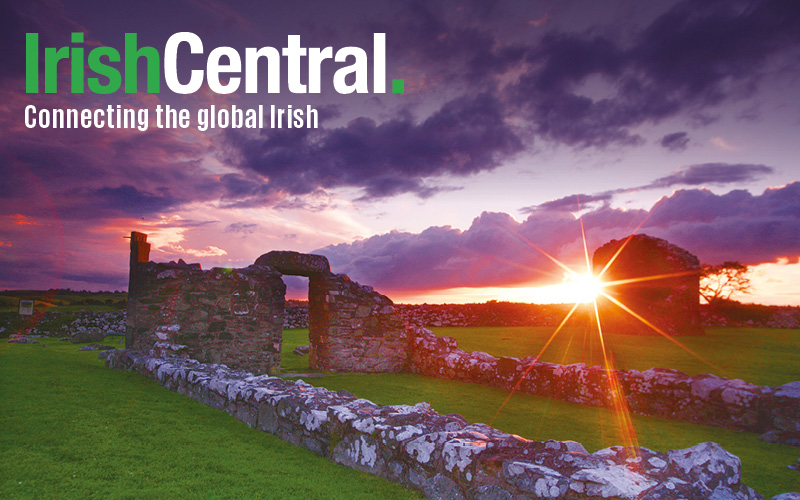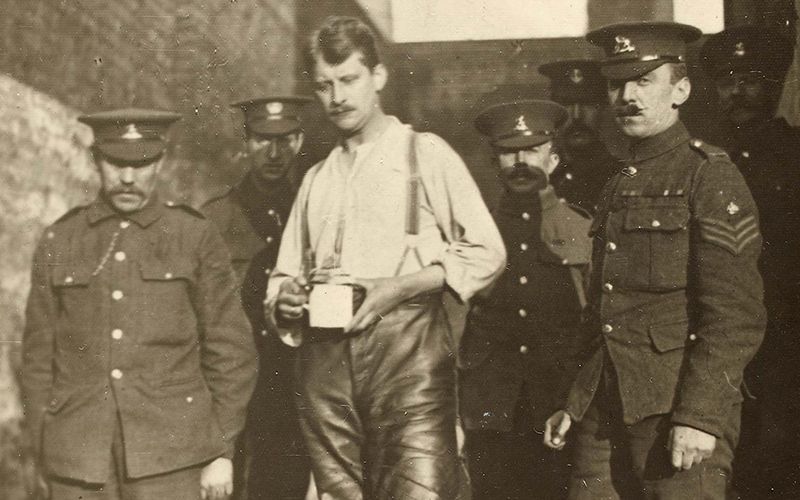Call of the Lark
By Maura Mulligan
Maura Mulligan is perhaps best known to the Irish community in New York for her works as a dancer and actor at the Irish Arts Center, and as the founder of the Irish language school An Scoil Gaelige.
In Call of the Lark, her atmospheric and heartfelt new memoir, she conjures an Ireland and a way of life that may be as irretrievably lost to us now as Atlantis.
Starting life as a servant girl in a big house in Ireland, Mulligan sailed to America at the tender age of 17 where she soon answered a higher calling, entering a Franciscan convent to become a nun.
In the 1960s the reforms of Vatican II were only very slowly being implemented, and the preeminence of the Church in the life of the Irish was still paramount.
For Mulligan, a comely country girl with a reverence for God, church leaders were representatives of an authority that was never to be questioned. Her portrait of her own timidity in their presence is instructive, as is her slowly growing awareness that the life of a nun was not for her.
Other portraits in the book are unforgettable. Mulligan carries the wounds of her early childhood in Ireland with her for decades, the book makes clear, only to see them emerge in therapy years later.
One particular act of shocking cruelty by her own mother may have contributed to her long courtship with authority figures and her eventual decision to step out of their shadow.
Call of the Lark is the call of a holy spirit, Mulligan’s own as it happens, which as often happens takes years to find its voice and make its wishes known. But the delight of the book and her tale is that she has the wisdom to follow its promptings and step into herself at last. Mulligan’s tale is the nation’s, really.
Greenpoint Press.
The Dream of the Celt
By Mario Vargas Llosa
Irish patriot Roger Casement’s brief but brilliant life has inspired generations of scholars, activists, political leaders and, most crucially for his lasting legacy, artists.
It was Casement’s compassion for the oppressed people of the world –which must have found its origins in his own experience of oppression as a discreetly closeted homosexual at the turn of the 19th century – that got him into trouble.
When Casement dared to draw a parallel between the oppressed people of the Belgian Congo and the Amazon with the present condition of the pre-Easter Rising Irish he attracted the attention of the British authorities.
Witnessing the abuses meted out on colonized people first hand and shocked by their savagery, Casement eventually traded theory for practice and became involved in the cause of Irish freedom that ultimately led to his imprisonment and execution.
For decades Ireland has refused to give this martyr for freedom his due because he came with baggage they didn’t want to acknowledge (he was gay). British intelligence, who were themselves known to harbor a few gay men in their lineups, ruthlessly exploited Ireland’s public morality to prevent Casement’s legend or activities from inspiring others.
As is so often the case with our most inspiring champions, it was non-Irish authors who understood and celebrated his challenge first. In The Dream of the Celt Mario Vargas Llosa restores this ahead of his own time figurehead to history and literature, where he deservedly belongs.
FSG, $27.
Flavors of Ireland: Celebrating Grand Places and Glorious Food
By Margaret Johnson
Gradually the Irish are realizing that the reputation of their home cooking skills has surpassed their near neighbors in Britain.
Right on cue there’s been a glut of genuinely sought after cookbooks to celebrate traditional Irish cooking and baking, and Flavors of Ireland is an example of the kind of modern Irish cookbook flying off the shelves internationally.
Margaret Johnson’s new book reflects the new enthusiasm for Irish cuisine and its signature elements.
With its emphasis on fresh and seasonal ingredients, it reminds readers that Ireland has a very distinctive food culture thanks to its geography, climate and unique history.
All of the familiar elements of Irish cooking are included in the new book: beef, lamb, and insanely rich dairy produce take pride of place alongside smoked, cured and spiced fish and meat.
But the book also takes time to remember other crucial Irish cooking ingredients like barley, wheat and rye too. For the weeknight hobbyist to the most sophisticated gourmet, Johnson’s knowledgeable book is sure to appeal to all comers.
Ambassador International, $19.99.
By Maura Mulligan
Maura Mulligan is perhaps best known to the Irish community in New York for her works as a dancer and actor at the Irish Arts Center, and as the founder of the Irish language school An Scoil Gaelige.
In Call of the Lark, her atmospheric and heartfelt new memoir, she conjures an Ireland and a way of life that may be as irretrievably lost to us now as Atlantis.
Starting life as a servant girl in a big house in Ireland, Mulligan sailed to America at the tender age of 17 where she soon answered a higher calling, entering a Franciscan convent to become a nun.
In the 1960s the reforms of Vatican II were only very slowly being implemented, and the preeminence of the Church in the life of the Irish was still paramount.
For Mulligan, a comely country girl with a reverence for God, church leaders were representatives of an authority that was never to be questioned. Her portrait of her own timidity in their presence is instructive, as is her slowly growing awareness that the life of a nun was not for her.
Other portraits in the book are unforgettable. Mulligan carries the wounds of her early childhood in Ireland with her for decades, the book makes clear, only to see them emerge in therapy years later.
One particular act of shocking cruelty by her own mother may have contributed to her long courtship with authority figures and her eventual decision to step out of their shadow.
Call of the Lark is the call of a holy spirit, Mulligan’s own as it happens, which as often happens takes years to find its voice and make its wishes known. But the delight of the book and her tale is that she has the wisdom to follow its promptings and step into herself at last. Mulligan’s tale is the nation’s, really.
Greenpoint Press.
The Dream of the Celt
By Mario Vargas Llosa
Irish patriot Roger Casement’s brief but brilliant life has inspired generations of scholars, activists, political leaders and, most crucially for his lasting legacy, artists.
It was Casement’s compassion for the oppressed people of the world –which must have found its origins in his own experience of oppression as a discreetly closeted homosexual at the turn of the 19th century – that got him into trouble.
When Casement dared to draw a parallel between the oppressed people of the Belgian Congo and the Amazon with the present condition of the pre-Easter Rising Irish he attracted the attention of the British authorities.
Witnessing the abuses meted out on colonized people first hand and shocked by their savagery, Casement eventually traded theory for practice and became involved in the cause of Irish freedom that ultimately led to his imprisonment and execution.
For decades Ireland has refused to give this martyr for freedom his due because he came with baggage they didn’t want to acknowledge (he was gay). British intelligence, who were themselves known to harbor a few gay men in their lineups, ruthlessly exploited Ireland’s public morality to prevent Casement’s legend or activities from inspiring others.
As is so often the case with our most inspiring champions, it was non-Irish authors who understood and celebrated his challenge first. In The Dream of the Celt Mario Vargas Llosa restores this ahead of his own time figurehead to history and literature, where he deservedly belongs.
FSG, $27.
Flavors of Ireland: Celebrating Grand Places and Glorious Food
By Margaret Johnson
Gradually the Irish are realizing that the reputation of their home cooking skills has surpassed their near neighbors in Britain.
Right on cue there’s been a glut of genuinely sought after cookbooks to celebrate traditional Irish cooking and baking, and Flavors of Ireland is an example of the kind of modern Irish cookbook flying off the shelves internationally.
Margaret Johnson’s new book reflects the new enthusiasm for Irish cuisine and its signature elements.
With its emphasis on fresh and seasonal ingredients, it reminds readers that Ireland has a very distinctive food culture thanks to its geography, climate and unique history.
All of the familiar elements of Irish cooking are included in the new book: beef, lamb, and insanely rich dairy produce take pride of place alongside smoked, cured and spiced fish and meat.
But the book also takes time to remember other crucial Irish cooking ingredients like barley, wheat and rye too. For the weeknight hobbyist to the most sophisticated gourmet, Johnson’s knowledgeable book is sure to appeal to all comers.
Ambassador International, $19.99.




Comments